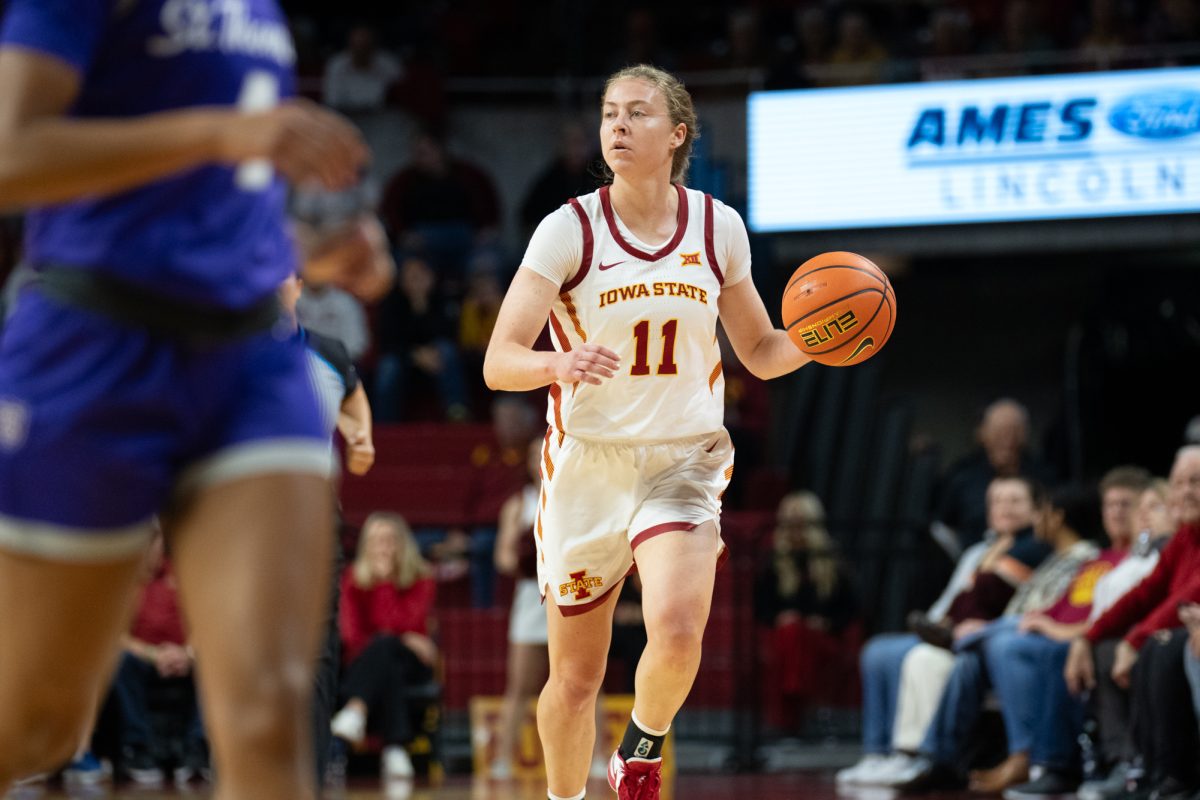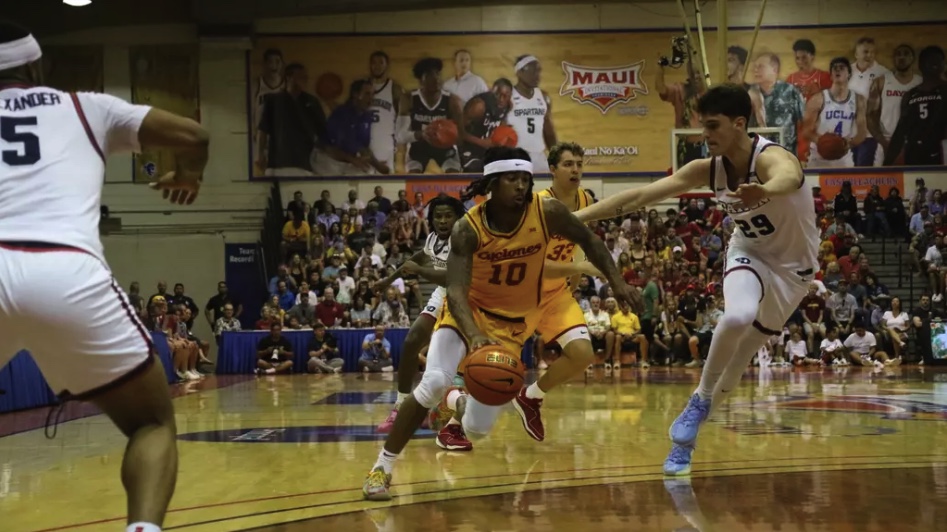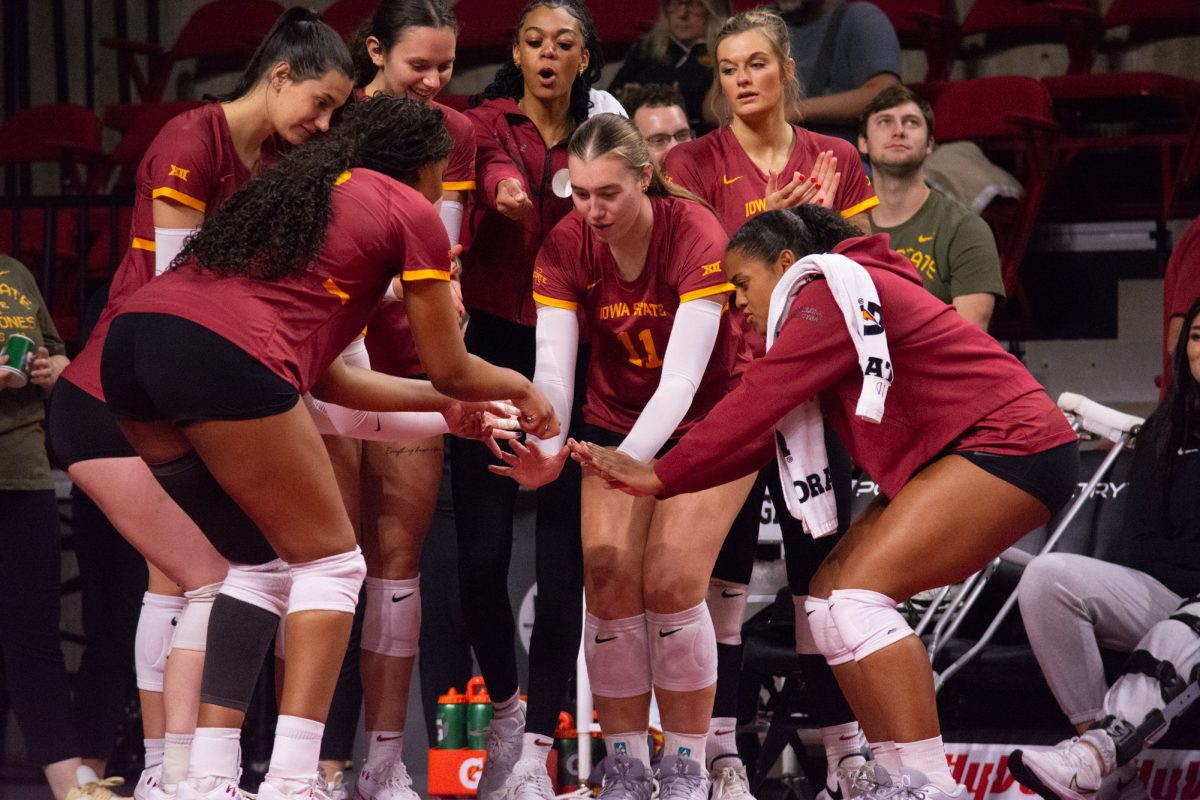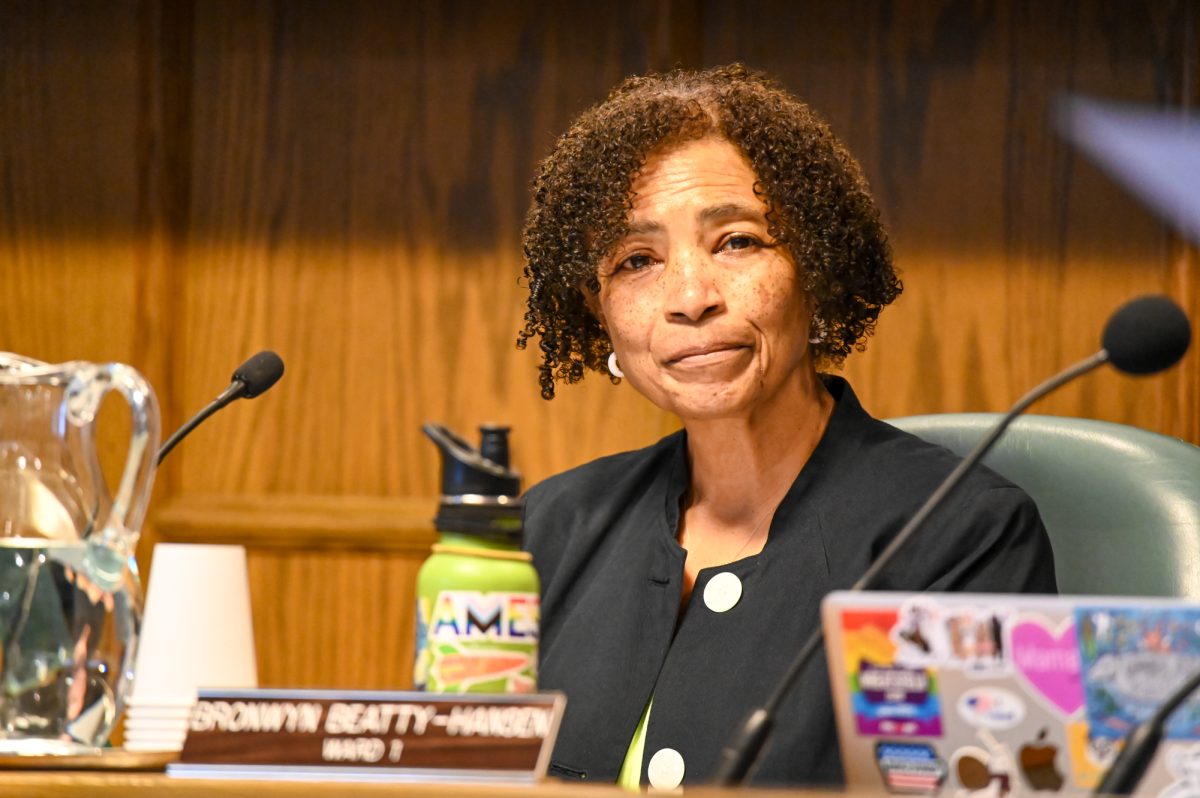COLUMN: Living in two cultures takes adjustment
May 21, 2003
After two grueling years of attempting life as an acculturated Midwesterner, I’m glad to once again recuperate from another semester on the sands of Hawai’i.
I have more than surprised myself at my ability to live in a here-and-there scenario, something I hardly realized until having an Iowan friend and my Native Hawaiian family together. Exposing one of my closest friends to my culture revealed my own life changes. While watching him struggle to eat Hawaiian foods (or copping out and resorting to cheeseburgers), I noticed just how much I have come to adjust my own lifestyle while living in Iowa. My college education has ventured beyond books, and I have become an identity chameleon.
Although I was raised in both indigenous and Anglo-American backgrounds, I have had more influence from my Hawaiian heritage, due to the context and geography of my childhood. I have my indigenous family, culture and lifestyle, as well as an Anglo-American side to my family, so I’m accustomed to the slight differences in cultures and lifestyles.
Growing up in different cultural worlds was beneficial in countless ways, but coming to Iowa and losing my primary cultural context was an initial identity issue in my collegiate experience. The absence of my Hawaiian influence was unsettling as I adjusted to a primarily Anglo culture.
Step one — hide that accent. I’ll always contend that I have no accent, but I can’t escape the accusations. So, apologies to Grant and Andrea and any other person whose name I’ll inadvertently slaughter. As an American Indian professor of mine once said, code-sharing, the skill of quickly switching between lifestyles, is vital when one is in multiple cultural worlds. My speech structure and tones vary depending on where I am. In Iowa, I have learned how to tone down some of my speech patterns and use appropriate vocabulary. Since I’ve been back home, I’ve managed to eradicate my mind of Midwestern nuances, and fall into the normalcy of my childhood patterns. Well most of them, anyway — I got caught trying to order a pop with my lunch the other day, to the amusement of my friends.
Code-sharing extends beyond the realm of speech. The way that I act, dress and interact with others varies from place to place. The cultures that I have been raised in and around are worlds apart from those I have experienced in the Midwest. I connected to a Hawaiian Airlines flight out of Los Angeles and immediately felt at home amongst the Honolulu-based crew. My departure gate was literally Hawai’i in the middle of Los Angeles, an early tease of my landing in Honolulu, and I felt I could act like myself once again.
My arrival in Honolulu seemed almost unreal. The humidity mixed in with tropic breezes, and the faint wafts of island flowers filled the air. From the plane, I went straight to a family get-together. The bonds of the family, both immediate and extended, is something I’ve missed while studying 4,000 miles away. The Midwestern version of me will take a nap for the summer as I become reacquainted with my island identity.
Coming home is always surprisingly difficult, as I’ve come to learn. I get anxious to finish school and come home for good, so that I don’t miss out on the ongoing changes. I entertain the thought of transferring home and finishing school locally, where I wouldn’t feel like a nut with an identity crisis. But, knowledge is endless. As Hawaiian scholar and elder, the late Mary Kawena Pukui notes, “Aohe pau ka ike i ka halau hookahi” — not all knowledge is taught in one place. Recently, another Hawaiian elder confirmed my own beliefs that an education away from home is invaluable culturally as well as academically.
I promised a friend that I’d be back for the fall semester. “I might as well finish up at Iowa State,” I assured her, “I’m almost pau, anyway.” The awkward silence followed by a confused “What?” reminded me that my code-sharing needs fine-tuning. “Done. I’m almost done.” As restless as I always am to get to my homeland, Iowa State is a great place to be. It’s a top choice for academics, and I’m expanding culturally. The crows don’t have the identity concerns, but if Ames is good enough for them, then it’s good enough for me, too.






